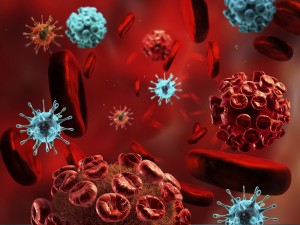Where To Get An HIV Blood Test And What To Expect
 Urgent Medical Center in Plantation, Florida is the leading source for all non-emergency medical needs, including discreet HIV blood tests.
Urgent Medical Center in Plantation, Florida is the leading source for all non-emergency medical needs, including discreet HIV blood tests.
An antibody test is given to detect HIV (Human Immunodeficiency Virus). When you’re HIV-positive your body responds by producing unique proteins in order to fight off the intruders. An HIV antibody test is used to determine the presence of these specific proteins in the blood, urine or saliva. If these proteins are detected you are considered HIV-positive.
As soon as your body detects HIV in the blood it reacts, fighting back with the production of antibodies. Interestingly, these antibodies are powerless at fighting off HIV, although they do serve an important purpose as they allow a simple blood test to detect the presence of HIV. (Reference)
HIV blood tests are recommended to anyone who may have been exposed to HIV. If you have a test and get a negative result you have true peace of mind. If your test results are positive, modern medicine gives us plenty of options to work with to help you live a long and healthy life. Once again giving you peace of mind and a fighting chance at a normal life.
Getting an HIV blood test can be a nerve-racking experience, which is why we strive to make you as comfortable as possible throughout the entire process. Remember, no matter what your test results reveal you always have options. The most important thing is to identify the presence of HIV as soon as possible.
What To Expect During Your HIV Blood Test
When you visit Urgent Medical Center for your HIV blood test you can rest assured that your test results remain 100% private between you and your provider. It generally takes around 2 weeks to get back HIV test results. In some instances you can get your test results back on the spot, or within about 20 minutes. While your results are confidential they are not anonymous. All instances of HIV must be reported to the public health database but rest assured this database is confidential and no one will be able to do a quick search online and find your name. The reporting system is important because it helps fuel new forms of treatment that work to keep people with HIV living longer, healthier and more normal lives.
How Is HIV Transmitted?
HIV is transmitted through blood-to-blood contact with an infected individual. HIV may also be transmitted through breast milk, vaginal fluid or semen. Sexual transmission is the most common way to spread HIV. If a mother is HIV-positive she can spread the virus to her child through breast milk. There are antiretroviral therapy options available that help reduce the risk of a mother spreading HIV to her baby.
Interestingly, HIV is a sensitive virus and when it is not in the human body it dies relatively quickly.
HIV Treatment Options
HIV is a lifelong chronic condition with no known cure as of now, although scientists are hard at work to change that. HIV is NOT Aids, instead it is a virus that may cause the development of the AIDS disease.
Most people with HIV require treatment, although 5% of infected individuals still require no treatment 15 years after infection. You can live a long life with HIV. Most people live with HIV for as many as 5-8 years before ever even developing associated symptoms.
Once treatment starts it is generally lifelong. There are over 26 drugs available made to target and treat the virus. When proper treatment medications are administered the levels of HIV present in the blood are reduced. As research continues more and more drugs are being developed to treat and one day cure HIV. (Reference)
How Long Can You Live With HIV?
A 2005 Denmark study found the average survival rate for someone 20-years old diagnosed with HIV in the US is 58.3 additional years. In other words, you can live a fairly normal lifespan even if you are HIV-positive. This is extremely comforting to people who think HIV is an immediate death sentence.
The majority of deaths caused by HIV are related to lack of treatment or knowledge of infection. (Reference)
According to a report by the Annals of Internal Medicine, death records from 1999 to 2007 show 22 million Americans died due to hepatitis B, C and HIV. Interestingly, more deaths are related to hepatitis C than HIV. This is largely due to the fact many people don’t know they have hepatitis C until symptoms become very serious. (Reference)
The best way to prevent death from HIV, hepatitis C or B is to get tested and follow a treatment regimen if you test positive.
For confidential, reliable HIV blood test in Plantation, Florida visit Urgent Medical Center today. We are here for you, no matter what!
